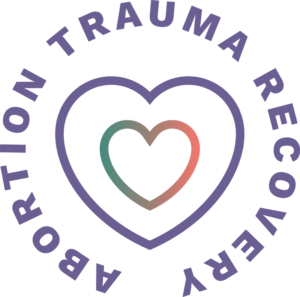Abortion Trauma*
noun
1. Understood to be a type of post-traumatic stress disorder (PTSD) and tends to manifest in forms such as self-destructive behaviours, relationship problems, mental health issues and replacement pregnancies; with a delayed onset (months/years) that is often precipitated by a triggering event. The cardinal features are denial and suppression.
2. A condition of persistent mental and emotional stress occurring as a result of severe psychological shock following an induced abortion, typically involving constant vivid recall of the experience, with dulled responses to others and to the outside world.
* Abortion Trauma currently has no official definition and is largely unrecognized and untreated with the incidence of severe psychological trauma unknown. Our mission is to change that and bring awareness to abortion trauma.
Abortion Trauma
Recognise, Respond, Rebuild
Abortion Trauma First Aid
For many, abortion is a death experience that represents a significant loss.
The Wall of Denial
Denial is a protective mechanism that helps us get through a crisis.
Know the Signs
Abortion Trauma wounds can be profound and insidious often enduring a lifetime with transgenerational consequences.
How to Heal
Healing begins with permission to express one’s feelings and finding validation.
Men and Abortion
Abortion can have a profound impact on men’s lives.
Personal Stories
Hear from women and men about their experience and journey after having an abortion.
Symptoms of Abortion Trauma
Mental Health Problems
Growing international research has led scholarly circles to agree that the correlation between abortion and poor mental health outcomes is established. While causation remains contentious, as a sticking point it is futile in the face of the undeniable presentation and devastation of abortion trauma within the community, and the need to address it. Common presentations include, PTSD, anxiety attacks, compulsive disorders (repeat abortions, eating disorders, sexual disorders, addictions), phobias, depression, personality disorders, psychosocial disorders, and emotional breakdown.
Self Destructive Behaviors
Self-destructive behaviours in those suffering abortion trauma has many presentations. It is not uncommon for the person affected to not consciously connect the problems they are experiencing directly to the abortion experience. Presentations may include:
- Obsessive Compulsive disorders
- Financial dysfunction (gambling)
- Associations of violence
- Substance use/abuse
- Suicidal thoughts/attempts
- Abusive relationships
- Adrenaline rush activities
- Self-harm activities
- Provoking crisis
- Sleep deprivation
- Promiscuity
- Workaholic
- Risk taking
Relationship Problems
Relationship problems from abortion trauma are all too common and equally unrecognized. Women and men who have experienced abortion can be left with overwhelming feelings of grief, guilt, and shame. Abortion may have the effect of profoundly wounding self-identity that can lead to:
- Marriage and family relationship breakdown
- Social and professional relationship breakdown
- Child neglect and/or overprotective
- Difficulty bonding with children
- Sexual dysfunction
- Domestic violence
Replacement Pregnancies
Relief, regret, reenactment – the cycle of repeat abortions generally begins after the first abortion. Reenactment is a characteristic indicator of trauma, where the woman acts out a past event [abortion] with the intent of better understanding what happened and mastering it – ‘a different outcome next time’. The self-defeating behaviour fractures a woman’s self-confidence, self-image, and self-control. Women trapped in the cycle of repeat abortions often report feeling compelled to become pregnant. Health professionals would improve their patients mental, physical, and emotional well-being by using available medical literature to help bring the meaning of her repeated abortions into her awareness.
Other symptoms
Understood to be a type of post traumatic stress disorder (PTSD), abortion trauma tends to have a delayed onset (months/years). The cardinal features are denial and suppression – meaning most women and men do not consciously connect the problems they are experiencing with their abortion(s).
You can never go back to being the person you were before the abortion.
(Melissa, 37, Librarian)
The abortion experience is different for every person, and abortion trauma symptoms and severity will vary with individuals:
- Chronic anger or rage
- Lowered self-esteem and self-confidence
- Self-sabotage (relationships, career, opportunities)
- Self-isolation
- Inability to be around pregnant women, babies or children generally
- Inability to concentrate
- Inability to maintain employment
- Inability to make decisions
- Sense of hopelessness
- Frequent crying
- Chronic fatigue
- Flashbacks
- Headaches, chest, or abdominal pains
- Gastrointestinal complaints
…abortion care …what a joke. Cared so much about me getting an abortion. Who cares now? You’ll get over it… no you don’t.
(Jessica, 22, Student)
Abortion Trauma wounds can be profound and insidious often enduring a lifetime with transgenerational consequences.

The Reality of Abortion Trauma.
Hear from women and men as they reveal the reality of how their abortion experience affected them and those around them.





